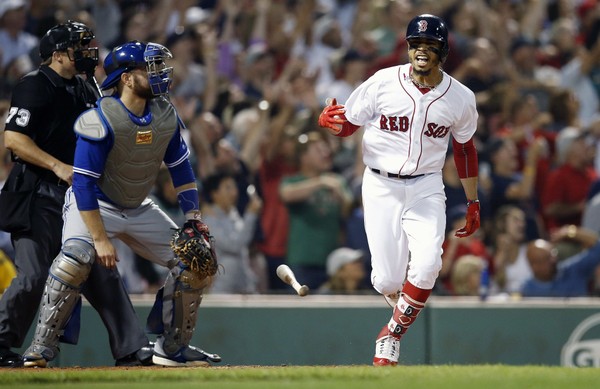Red Sox superstar Mookie Betts is coming off an MVP Award for the 2018 season. There have been 11 seasons before Betts’ MVP season in which a Boston Red Sox won the award. Only one of those seasons saw a guy win his second MVP Award.
1912
Tris Speaker won the Most Valuable Player Award in 1912. The award then was not the modern MVP award. From 1911-1914 it was named the Chalmers Award, for the automobile company. However, just like now, baseball writers were the ones who determined the winner. The modern award was started in 1931.
As for Tris Speaker, he batted .383 and led the league in doubles, home runs and on-base percentage in 1912. It was easily his finest season with the Red Sox. However, he did not suffer that big of a drop-off in 1913. Speaker still batted .363 with a .974 OPS. He stole 46 bases and tripled 22 times.
1938
Jimmie Foxx was the recipient of the Red Sox first “modern” MVP Award. Foxx had won two MVP Awards while playing with the Philadelphia Athletics. 1938 was his third season in Boston after being traded.
In 1938, Foxx led the league in batting average, on-base percentage, slugging percentage, runs batted in and walks. His 175 RBI that season is still a franchise record. His 50 home runs remained a franchise record for nearly seven decades, and his 398 total bases was a franchise record for 40 years.
In 1939 he was almost as good, just in less playing time. He upped his batting average to .360 and still led the league in on-base and slugging percentage. His 35 home runs led the league despite him only garnering 467 at-bats. Foxx finished second in the MVP vote that season.
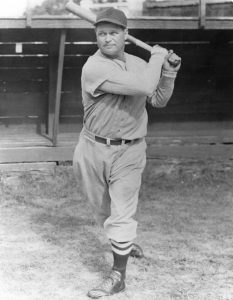
1946
By the time Ted Williams won his first MVP Award in his first year back from war, he had already been robbed of two MVP’s. His lack of MVP’s, all things considered, has largely been attributed to him not getting along with the media members who voted for the awards.
In 1941, he batted .406, yet finished second to Joe DiMaggio for the award. DiMaggio batted .408 during his famous 56 game hit streak, just .002 better than Williams did for the entire season.
In 1942, Williams won the Triple Crown and led the league in just about every conceivable batting statistic. Somehow, he lost out to another Yankee on the Award. Joe Gordon won the award despite trailing in every statistic. His OPS was 237 points lower and he hit half as many home runs. Hmmm.
Williams finally got his due after returning from war. He led the league in on-base and slugging percentage and batted .342 with 38 home runs. As an encore, he led the league in even more categories, again winning the Triple Crown. Yet again, Williams somehow managed to finish second in the MVP vote while winning the Triple Crown. Joe DiMaggio was handed the award despite only hitting .315 with 20 home runs and 97 RBI.
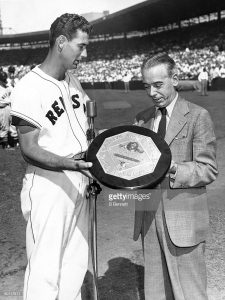
1949
After a third-place finish in 1948, Williams won his second MVP Award in 49. He led the league in on-base and slugging percentage, home runs, doubles and runs batted in.
In 1950 he was having another great season before breaking his elbow at the All-Star Game after crashing into the outfield wall. Williams only played 89 games that year yet managed to hit 28 home runs and drive home 97 runs. He would have been his typical MVP deserving self had he not broken his elbow.
1958
A Red Sox not named Ted Williams managed to win the MVP before Williams’ playing days were over. Jackie Jensen won the Award in 1958, his fifth season with the Red Sox. Jensen hit 35 home runs and led the league with 122 RBI.
As a follow-up, Jensen again led the league in RBI in 1959 while hitting 28 home runs. He surpassed 100 runs batted in for the fifth time in six seasons with the team, finishing at 97 in the other season. Jensen also had his second 20-20 season with the Red Sox in 1959, stealing 20 bags while being caught just five times.
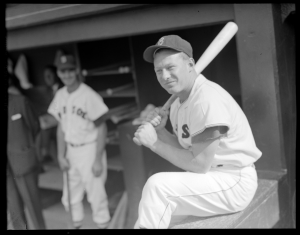
1967
We all know of Carl Yastrzemski’s 1967 season. He won the Triple Crown and led the Red Sox to the American League pennant that season. It was a career year for Yaz, but how did he finish the following season?
Well, his statistics dropped off quite a lot, but so did a lot of the league in the offensively-challenged 1968 season. In fact, Yaz won the batting title that season with a .301 average. He also led the league in on-base percentage and OPS. The biggest drop-off was his power, falling from 44 home runs in 1967 to 23 in 1968. With it, his RBI and slugging percentage tumbled.
1975
In 1975, Fred Lynn became the first rookie to win the MVP Award. To this day, he is joined only by Ichiro Suzuki, who at 27 was hardly a real rookie. Lynn led the league in doubles, on-base percentage and OPS that rookie season.
In 1976, although Lynn played well, his offense took a noticeable dip. Lynn batted an excellent .314, but with 10 home runs his total was less than half of his rookie season. Lynn also hit 15 less doubles and walked less. So, it was a solid season, but a far cry from his MVP campaign.
Lynn actually was the best player in the league in 1979, arguably his best season. Don Baylor won MVP after leading the league in RBI and making the playoffs. However, the Red Sox actually won three more games than the Angels, yet missed the playoffs. Lynn led the league in batting, on-base percentage and slugging that season while hitting 39 home runs. Somehow, he finished fourth in the voting.
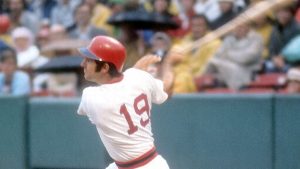
1978
In the midst of a monster three-year stretch, Jim Rice put up his best season in 1978. He won the MVP Award that season and broke Jimmie Foxx’ 40-year-old franchise record for total bases in a season. Rice led the league in hits, home runs, RBI, triples, total bases, slugging and OPS.
Hi follow-up season wasn’t much worse. Rice hit a career high .325 in 1979 and launched 39 home runs. He again led the league in total bases and eclipsed 200 hits for the third season in a row.
Over the three year stretch he batted .320 with a .972 OPS. His average season had 207 base hits, 41 home runs, 12 triples and 128 RBI.
1986
Roger Clemens won the MVP in addition to the Cy Young Award in 1986. He is still the only pitcher in Red Sox history to do so, thanks to Pedro Martinez being robbed of the MVP in 1999. Clemens had a breakout season, leading the league in wins, ERA and WHIP. He struck out a record 20 batters in April of that season, a feat he would match ten years later.
Clemens did not disappoint in 1987. He again led the league in wins and won the Cy Young Award. He was 20-9 that year with a 2.97 ERA and 256 strike outs. His strike outs placed him second to Mark Langston and he finished third in ERA.
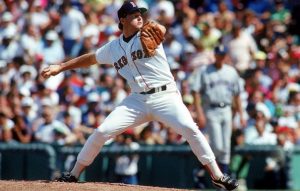
1995
Mo Vaughn wasn’t really the best player in the American League in 1995, but he had an excellent season and it led to the MVP Award. The Red Sox won the division title in large part to Mo’s bat. Mo batted .300 that year with 39 home runs and a league leading 126 runs batted in.
Mo was even better in his quest to win back-to-back MVP’s in 1996. Unfortunately, the team didn’t quite measure up. Vaughn had a career high 207 base hits, 44 home runs and 143 runs batted in that season. His batting line was an exquisite .326/.420/.583/1.003. This led to a fifth-place finish in the MVP voting despite the Red Sox third-place finish in the American League East.
2008
Following up his Rookie of the Year Award in 2007, Dustin Pedroia added every other award to his cabinet in 2008, taking home the MVP, Gold Glove and Silver Slugger. He led the league with 213 base hits and 54 doubles while playing great defense. His .326 average was tops on the team and he was a near perfect 20-21 on stolen bases.
In 2009 he fell off some, but he pretty much had to. Pedroia still batted .296 with 48 doubles. He stole 20 bases for the second straight season and played his usual stellar defense. His play led to a second straight all-star berth.
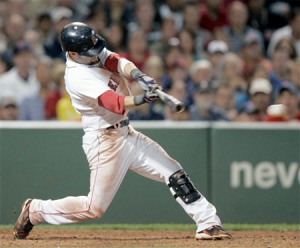
2018
Mookie Betts had a phenomenal 2018 season, leading the league in hitting (.346) and slugging (.640). He had a 30-30 season and bashed 48 doubles to boot. On top of it all, he won a Gold Glove for his continued excellence in right field.
So how will Mookie Betts follow up his MVP season? As you can see, most former Red Sox MVP’s only suffered small drop-offs the following season. All of them were still very good the following year. Betts was so good last year he almost has to drop off a little, but not much of one should be expected, and nothing in this history changes that viewpoint.
Featured picture from Masslive.com
